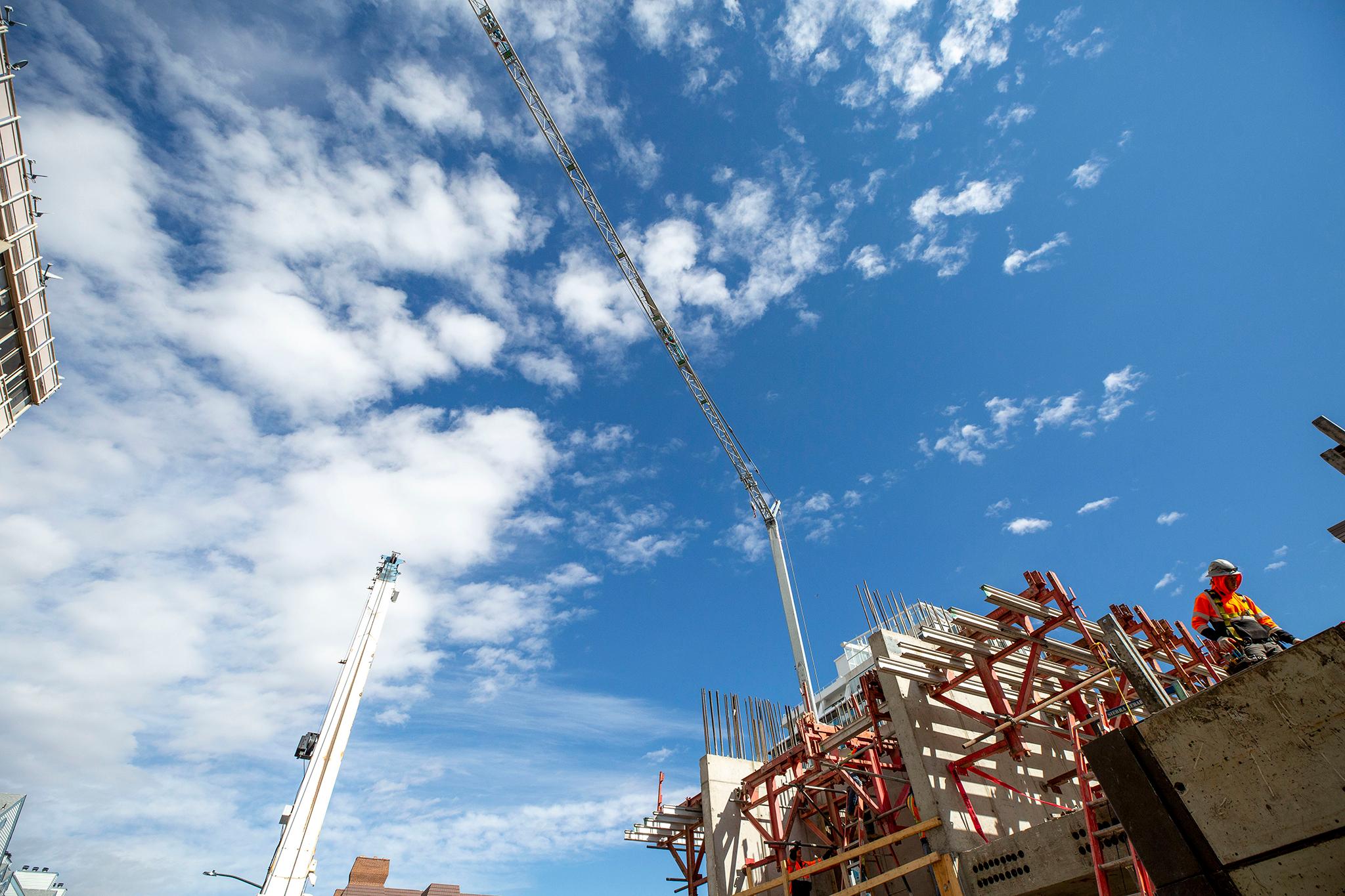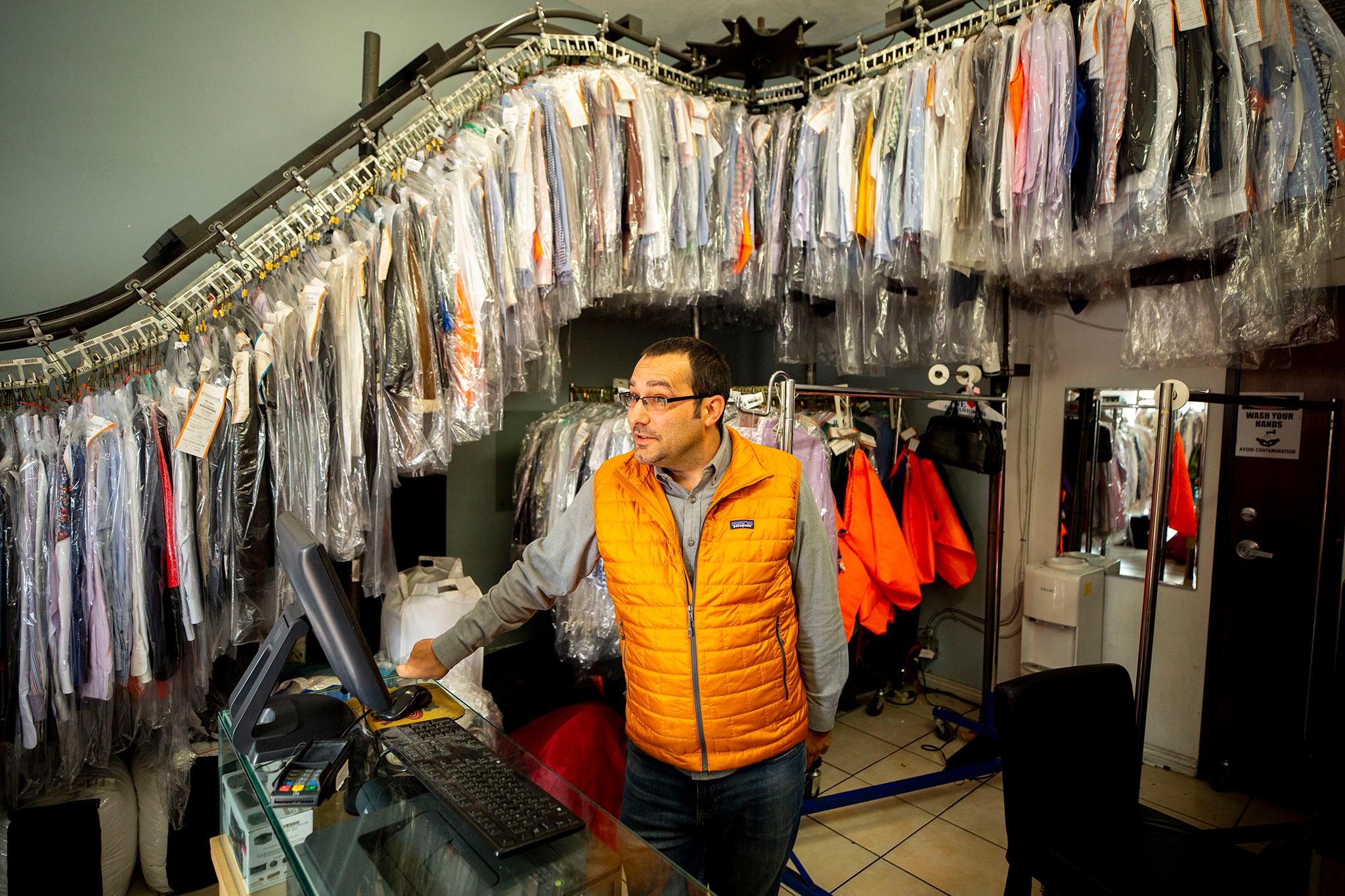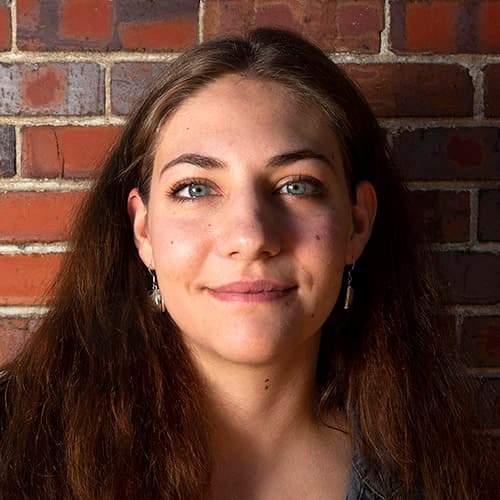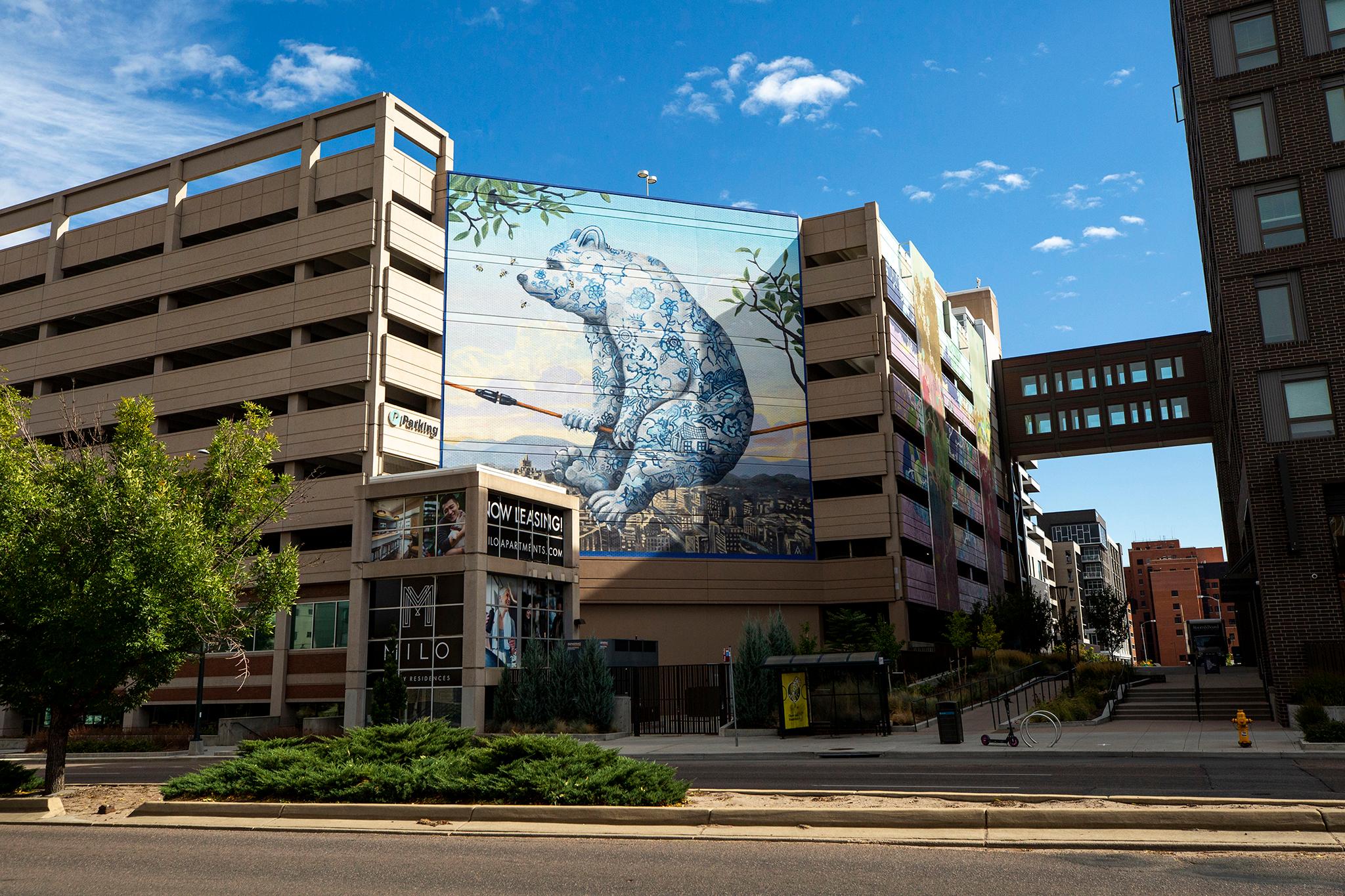The small, rectangular patch of developments springing up along Colorado Boulevard in Denver's Hale neighborhood has seen massive changes since 2014, when developer Continuum and CIM Group first bought the 26-acre plot of land.
What's now known as the 9th+CO development, formerly part of the University of Colorado Health and Sciences Center, boasts ultra-modern luxury apartment blocks. They include Theo and Milo, a set of townhomes called Ella CityHomes, a 55+ community called Overture, and one affordable housing complex called Ash Street Apartments. Together, the developments have brought nearly 1,000 new living spaces to the neighborhood, along with a slew of retail, restaurant and entertainment venues that have opened alongside them.
The 9th+CO neighborhood is the third crack developers have taken at reincorporating the CU medical campus into the mostly single-family-home Hale neighborhood. The campus began running into space issues in the 1990s as the city grew around it, and it eventually moved to the Anschutz Medical Campus in Aurora in 2008. The first developer with plans for the land, Shea Properties, backed out of their proposal as the financial crisis ramped up. Fuqua Development came next, with a proposed complex anchored by a Walmart.
"It was 30,000 or more square foot," Wende Reoch, who sits on the board of directors at the Cranmer Park-Hilltop neighborhood, recalled. "The neighborhood freaked out because that was not what we wanted. We wanted mixed use more focused on smaller restaurants, smaller businesses and multifamily housing."
This paved the way Continuum and CIM Group and their high-end, pedestrian-friendly addition to the Hale neighborhood. In 2015, all the buildings except for the Nurse's Dormitory and a parking garage were demolished to make way for it.
Development isn't over, either. Another 17-story tower, with around 260 condos, 280 parking spaces, a rooftop lounge and fifth- story pool and spa is slated for 4207 E. 9th Ave. The project is currently undergoing city review.

What's grown up at 9th and Colorado has a lot of the hallmarks of "new Denver."
It's walkable (at least internally), it's mixed-use, it's dense, and it's a type of modern living that is either smaller or more expensive than the Denver of old. The cheapest "micro" apartments at Milo go for around $1,200 per month. Ella CityHomes' prices began at around $900,000. Outside developers Koelbel and Company and Mile High Development are behind the 112 affordable housing units at the Ash Street Apartments. With this setup, 9th+CO has kept initial promises of providing affordable housing units -- just in a separate building.
John Huggins, a partner at Ash Street Apartments, said this setup is par for the course. "Tax credit programs are generally targeted at new construction of separate buildings," Huggins said. "Because of the way the program works and the affordability requirements... it would be quite difficult to blend the affordable units in with, say, market rate units."
Across Colorado Boulevard, established eateries have watched the rapid development with a mixture of interest and resignation. Continuum and CIM Group began conducting community outreach for the project as early as 2014, meeting with city councilmembers and the registered neighborhood organizations of Bellevue-Hale and Cranmer Park-Hilltop.
Many small businesses in the area remembered at least some of the community outreach that occurred half a decade ago.
"We were hoping with the redevelopment would bring additional business to the area, additional commerce, but it really hasn't for us." Jay Dedrick, the owner of nearby Swing Thai, said.
Swing Thai has operated across from the campus -- and then the development -- for the last 20 years. Dedrick said the CU campus closure originally took away their reliable lunch crowd, and the years between the closure and the completion of the new developments were difficult for his business.
"It's brought more competition, more restaurants," Dedrick said. 9th+CO now boasts places like Hopdoddy Burger Bar, Pizzeria Locale and Postino WineCafe. Blanco Tacos+Tequila and Culinary Dropout are both slated to open in November.
Dedrick also lamented the heavy traffic on Colorado Boulevard, which he says deters potential customers crossing over from the complex.
"We're kind of falling out of love with Denver because it's gotten so crazy busy, and traffic is just horrendous," he said. "Denver as a whole is not as attractive as it used to be. The whole development and growth has been reckless in my mind, and our leadership has really dropped the ball."
But Craig Haskell, who has been working at The Cleaners, a dry cleaner on 8th Avenue, for the last three years, said they've seen an uptick in customers since the developments opened.
"It hasn't really changed as far as the type of customer we're getting. It's mostly white-collar workers around here, which fits with the general neighborhood," he said. Haskell's main qualms revolve around transportation, as he lives along Colorado Boulevard. "Parking already completely sucks. I mean, Colorado Boulevard's already swamped."

But for community members like Reoch from the registered neighborhood organization, complaining about parking is ignoring the root cause of the issue: the city's over-reliance on cars.
"Parking has always been a problem. The parking was a problem when the university was here," she said. "We need more housing, we need more options for people to live and work in Denver. It's not a reasonable opposition to a development in my mind, but it's one that's always used."
The developer has already made some headway by allocating 2,500 parking spots inside a 7-story garage and along roadways. The RTD 10 bus also bisects the development and wraps around the nearby Rose Medical Center.
There are also many bright spots to the new complex. Haskell conceded: "We like the restaurants."
Huggins, the partner at Ash Street Apartments, agreed. "As a resident of Hilltop neighborhood, we're very happy with the redevelopment, the retail choices that it's offering, the restaurants," he said. It's better, "certainly, compared to the prior proposal."
So what's life like inside one of these luxury developments?
Teresa Pomrening lived in the Milo with her partner from September 2020 until May 2021.
"It was definitely marketed as a luxury building," Pomrening said. "There were a number of amenities, both in the community that had been recently built, as well as in the apartment complex... we were looking for somewhere that really had everything we needed all in one location." Initially, they loved the available fitness center and office spaces.
There were a couple downsides to living in a rapidly-developing area, however. Their apartment faced the construction sites that would eventually become Culinary Dropout and Blanco Tacos+Tequila, and noise was a minor daytime disturbance for them. The biggest problems began when their complex started filling up.
"When we moved in, no one was living on either side of us. No one had moved in above us yet, and so it was really great for the first couple of weeks," Pomrening said. The new neighbors weren't noisy, but the walls were thin. "Their living room backed up to our bedroom, and we could clearly hear conversations of our neighbor next door to the point where if I recorded it, you would be able to hear what they were saying."
She eventually opted to terminate the lease early. "We paid a lot of money to live there, and we didn't feel like the price we were paying was worth what we were getting," she said.
While the new amenities are a great draw, some longtime residents are simply not ready for change. In the words of Swing Thai's Jay Dedrick: "More people doesn't mean a better city."














